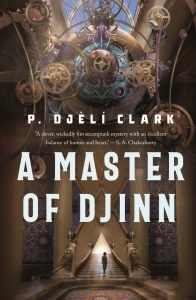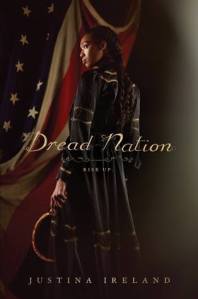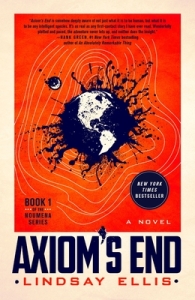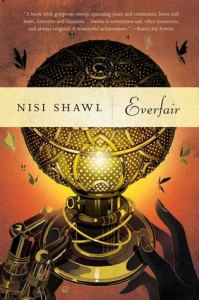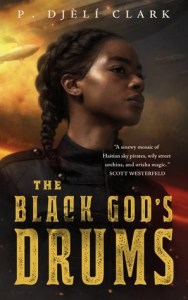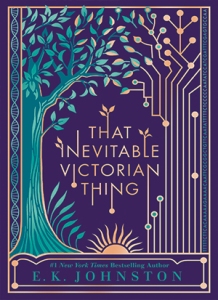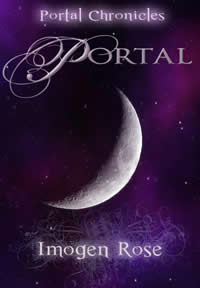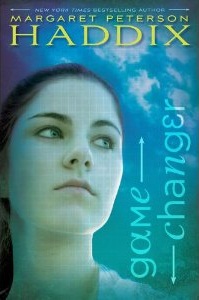Title: A Master of Djinn
Series: Dead Djinn Universe #1
Author: P. Djèlí Clark
Genre: Alternate History/Mystery
Trigger Warnings: Racism, misogyny, racial slurs, police brutality, violence, blood, body horror, stalking (minor)
Note: In DNF books, warnings listed only include the amount of book I read. There may be other triggers further on that I did not encounter.
Read To: 50%
Back Cover:
Cairo, 1912: Though Fatma el-Sha’arawi is the youngest woman working for the Ministry of Alchemy, Enchantments and Supernatural Entities, she’s certainly not a rookie, especially after preventing the destruction of the universe last summer.
So when someone murders a secret brotherhood dedicated to one of the most famous men in history, al-Jahiz, Agent Fatma is called onto the case. Al-Jahiz transformed the world forty years ago when he opened up the veil between the magical and mundane realms, before vanishing into the unknown. This murderer claims to be al-Jahiz, returned to condemn the modern age for its social oppressions. His dangerous magical abilities instigate unrest in the streets of Cairo that threaten to spill over onto the global stage.
Alongside her Ministry colleagues and a familiar person from her past, Agent Fatma must unravel the mystery behind this imposter to restore peace to the city—or face the possibility he could be exactly who he seems…
Review:
I was really excited for this read. I read the two prequel short stories for this series (A Dead Djinn in Cairo and The Haunting of Tram Car 015) and enjoyed them immensely, and I hoped this book would be more of the same, but longer.
Turns out longer is not really what I wanted. This book just didn’t grab me like I’d hoped.
For starters, the main plot is the mystery, but the secondary plot is Fatma being assigned a partner and the whole “detective who works alone has to learn to work with their partner” trope. I’m not a huge fan of that trope anyway, and it brought out a mean and haughty streak in Fatma that I didn’t particularly like.
I also wasn’t enthused with the main plot as a whole. Fatma and her partner do some investigating into the person pretending to be al-Jahiz who murdered the brotherhood, and halfway through the book, they have discovered that someone is pretending to be al-Jahiz and did in fact murder the brotherhood. It felt like they’d made no progress and answered none of the questions they were trying to answer, and it felt like Fatma’s priorities were more “get my partner reassigned so I can work alone again” and “hang out with my girlfriend” than “solve the mystery.”
To be fair, I don’t read a lot of mysteries (a grand total of 5 in the nine years I’ve been blogging, and 3 of them were this year). I don’t know how they’re supposed to go. All of these complaints could just be my inexperience with mysteries and the fact that they’re not usually my favorite genre. If you’re a fan of mysteries and detective fiction, you might enjoy this a lot more than I did. It’s just not the book for me.
The Dead Djinn Universe:
Novellas:
Novels:
- A Master of Djinn

